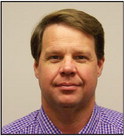ADEQ cites West Memphis for wastewater issues

ADEQ cites West Memphis for wastewater issues
City self- reports bypasses of sewage treatment facility, sewer overflows
news@theeveningtimes.com
Untreated sewage from West Memphis is too often dumped into the Mississippi River according to the Arkansas Department of Environmental Quality. The state put the city utilities company on notice for a corrective action plan.
The West Memphis utilities self-reported three bypasses of the wastewater treatment plant and 107 sanitary sewer overflows.
Both problems violate the utilities’ National Pollutant Discharge Elimination System wastewater permit standards. The Environmental Protection Agency Manages the NPDES in partnership with the ADEQ. The national permit regulates sources that discharge pollutant into waters in the United States.
The ADEQ asked for a four point action to correct the problems. That happened over a three year period between the beginning of 2014 through the end of last year. Storm water inflow and infiltration into the West Memphis effluent system can occasionally flow into the wastewater treatment plant faster than it can be handled.
During the March Utilities Commission meeting, General Manager Todd Pedersen acknowledged the February 21 letter from the ADEQ.
“We have to respond with a corrective action plan within 60 days,” said Pedersen. “We’ve had three bypasses at the sewer plant. We’ll put a long-term plan, five to ten years, into writing to address these issues across the city with the sewer system.”
The treatment plant was bypassed again on March 2. “We filled up a 90 million gallon equalization basin and then we had to open the bypass,” said Pedersen.
Commissioners anticipate reviewing the corrective action plan at their April meeting.
“We will have the longterm plan in writing and be giving updates every six months,” said Pedersen.
ADEQ asked for four specific remedies. Regulators called for a wastewater treatment plant assessment to ensure sufficient capacity to handle both storm water runoff and wastewater treatment. A sanitary sewer capacity evaluation aimed at eliminating overflows was also called for.
The ADEQ wanted the information organized by improvement priorities and laid out along a compliance time line with milestones toward full compliance.

By John Rech


Share